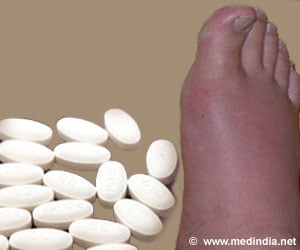The 20-day gap between infections is the shortest known.
The woman, a healthcare worker, first tested positive on December 20 2021, in a PCR test during staff screening at her place of work.
She was fully vaccinated and had received a booster shot 12 days earlier.
The patient, who didn’t develop any symptoms, self-isolated for ten days before returning to work.
On January 10, 2022, just 20 days after first testing positive, she developed a cough, and fever and felt generally unwell and did another PCR test. This was also positive.
Whole-genome sequencing showed that patient had been infected by two different strains of SARS-CoV-2. Their first infection, in December, was with the Delta variant. The second, in January, was with the Omicron variant.
The Omicron variant had been identified as a variant of concern by the World Health Organization just over a month earlier, on November 26, 2021.
The strain, which went on to become the dominant variant worldwide, is much more infectious than Delta and can evade immunity from past infections and from vaccination.
Dr. Gemma Recio, of Institut Catal de Salut, Tarragona, Spain, one of the study’s authors, says: “This case highlights the potential of the Omicron variant to evade the previous immunity acquired either from natural infection with other variants or from vaccines.”
“In other words, people who have had COVID-19 cannot assume they are protected against reinfection, even if they have been fully vaccinated.”
“Nevertheless, both previous infection with other variants and vaccination do seem to partially protect against severe disease and hospitalization in those with Omicron.”
“This case also underscores the need to carry out genomic surveillance of viruses in infections in those who are fully vaccinated and in reinfections. Such monitoring will help detect variants with the ability to partially evade the immune response.”
Source: Eurekalert



